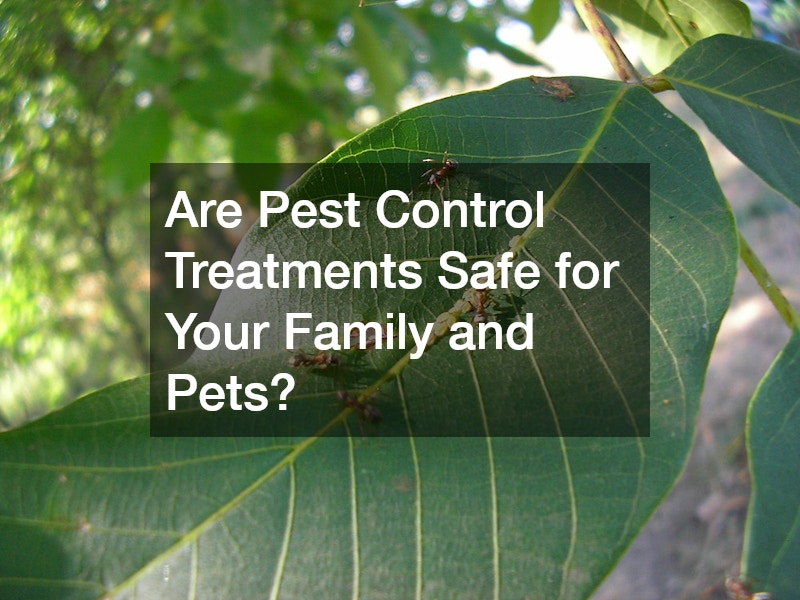
Pest control is an essential practice that not only protects your home but also safeguards your health and property values. By addressing pest issues promptly, you can prevent significant health risks and structural damage, ensuring a safe and comfortable living environment. In this article, we explore when you need to contact a pest control company.
What Are the Signs That You Need to Call a Pest Control Company?
Common Indicators of Pest Infestations
One of the most obvious signs of a pest infestation is the presence of droppings, which can often be spotted in kitchens or basements. Additionally, the sight of damaged structures, such as chewed wires or gnawed wood, may hint at a hidden pest problem that requires immediate attention.
Strange noises within the walls or ceilings can indicate that pests are nesting inside your home. Sounds of scratching, buzzing, or flapping may point to rodents, insects, or even bats occupying your living spaces.
Unpleasant odors emanating from certain areas of your home can also be a sign of an infestation. These smells often result from droppings, urine, or dead pests and should not be ignored if detected.
Seasonal Pests and Their Triggers
Certain pests become more prevalent during specific seasons, making it crucial to stay vigilant. For example, ants and termites may become particularly active during the warmer months, seeking food and shelter in your home.
In the fall, when temperatures drop, rodents often seek refuge indoors, posing a greater threat to your home. Similarly, the wet season can lead to an increase in mosquitoes and other moisture-dependent pests.
Understanding the seasonal behaviors of pests can help you anticipate and prevent infestations. By being proactive and partnering with a pest control company, you can address potential issues before they escalate.
Why Is Professional Pest Control More Effective Than DIY Solutions?
Expertise and Advanced Techniques
Professional pest control experts have the knowledge and tools necessary to effectively address pest problems. They are trained to identify pest species accurately and apply targeted treatments, ensuring thorough and efficient removal.
Experts have access to advanced techniques and technologies that are often unavailable to the general public. These resources allow them to deploy more effective eradication methods that minimize pest recurrence.
In many cases, professional assessment can uncover hidden infestations that DIY methods might miss. Trained eyes can spot signs of pest activity that are not immediately apparent, providing comprehensive treatment solutions.
Long-term Costs and Benefits Analysis
While the upfront cost of professional pest control may seem higher, it often proves to be more cost-effective in the long run. DIY solutions can lead to recurring problems, resulting in higher cumulative expenses over time.
Professional treatments are designed to provide a lasting impact, reducing the likelihood of future infestations. This longevity translates to significant savings and greater peace of mind for homeowners.
Considering the potential damage and health risks associated with unmanaged pest problems, investing in professional services is a wise decision. The comprehensive approach of experts ensures that issues are resolved thoroughly, offering protection for your home and family.
How Often Should You Schedule Pest Control Treatments?
Recommended Frequency Based on Living Environment
The frequency of pest control treatments should be tailored to your living environment. Urban dwellers may require more frequent visits due to higher pest densities and limited natural predators.
In rural areas, where wildlife and open spaces are abundant, bi-annual treatments could be sufficient. However, certain factors such as local climate and habitat can influence the necessity for more regular intervention.
For residents in suburban settings, quarterly treatments are generally recommended. These visits help maintain a pest-free environment and address any emerging issues before they become significant problems.
Seasonal Treatments and Their Importance
Pest control companies understand the importance of aligning treatments with seasonal changes. As pest activity fluctuates with the seasons, regular inspections and treatments can prevent infestations from gaining a foothold.
Scheduling treatments during peak pest seasons can help control populations before they multiply. For instance, pre-summer treatments can deter ant invasions while pre-winter visits can keep rodents from nesting indoors.
By adapting treatments to seasonal trends, you ensure a consistent and effective barrier against pests. This proactive approach not only protects your home but also minimizes stress and potential damage.
What Should You Expect from a Pest Control Service Visit?
Inspection and Identification Process
During a pest control visit, professionals will conduct a thorough inspection of your home to assess the situation. They identify the types of pests present and determine the extent of the infestation.
After the inspection, they will explain their findings and the likely causes of the pest issues. This step educates homeowners about the problem and potential preventive measures for the future.
Treatment Plans and Follow-up Procedures
After identifying the pest issues, the pest control company will create a customized treatment plan. This plan outlines the specific strategies and products that will be used to eliminate the pests effectively.
Professionals may employ a range of treatments, from chemical applications to traps, based on the type and severity of the infestation. The aim is to eradicate the pests efficiently while minimizing disruption to your home.
Are Pest Control Treatments Safe for Your Family and Pets?
Safety Protocols in Pest Control Treatments
Reputable pest control companies prioritize safety by implementing strict protocols during treatments. They utilize non-toxic and environmentally friendly products wherever possible to protect household inhabitants.
Precautionary measures are taken to minimize exposure to chemicals, such as targeted application and controlled use. This ensures that treatments are safe for your family and pets while effectively tackling pest problems.
Tips for Preparing and Managing Your Home Environment
Before a pest control visit, it’s advisable to prepare your home to ensure a smooth and effective process. Professionals may recommend decluttering or removing food sources to enhance treatment efficacy.
During the treatment, keeping children and pets away from the treated areas is essential to maintain safety. Following the visit, airing out the space and cleaning thoroughly can help alleviate potential residues.
.





